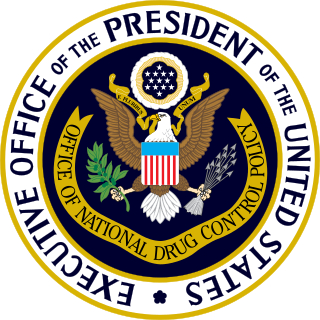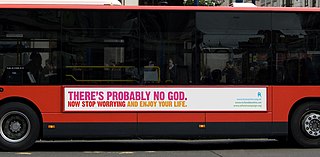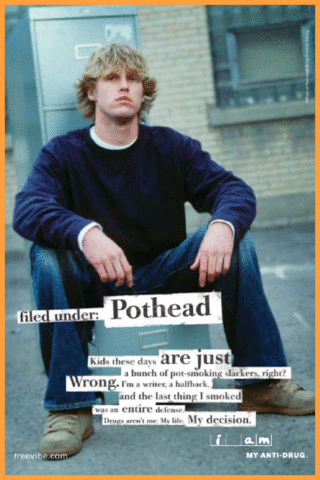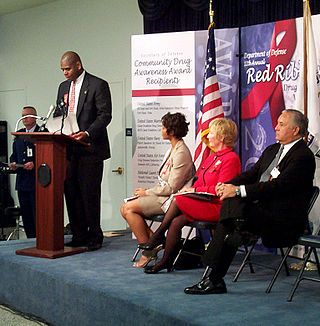A public service announcement (PSA) is a message in the public interest disseminated by the media without charge to raise public awareness and change behavior. Oftentimes these messages feature unsettling imagery, ideas or behaviors that are designed to startle or even scare the viewer into understanding the consequences of undergoing a particular harmful action or inaction as well as the importance of avoiding such choices. In the UK, they are generally called a public information film (PIF); in Hong Kong, they are known as an announcement in the public interest (API).

The American Family Association (AFA) is a conservative and Christian fundamentalist 501(c)(3) organization based in the United States. It opposes LGBT rights and expression, pornography, and abortion. It also takes a position on a variety of other public policy goals. It was founded in 1977 by Donald Wildmon as the National Federation for Decency and is headquartered in Tupelo, Mississippi.

The Office of National Drug Control Policy (ONDCP) is a component of the Executive Office of the President of the United States.

"Just Say No" was an advertising campaign prevalent during the 1980s and early 1990s as a part of the U.S.-led war on drugs, aiming to discourage children from engaging in illegal recreational drug use by offering various ways of saying no. The slogan was created and championed by Nancy Reagan during her husband's presidency.
Commonly-cited arguments for and against the prohibition of drugs include the following:

This Is Your Brain on Drugs was a large-scale US anti-narcotics campaign by Partnership for a Drug-Free America (PDFA) launched in 1987, that used three televised public service announcements (PSAs) and a related poster campaign.
Winston is an American brand of cigarettes, currently owned and manufactured by ITG Brands, subsidiary of Imperial Tobacco in the United States and by Japan Tobacco outside the U.S. The brand is named after the town where R. J. Reynolds started his business which is Winston-Salem, North Carolina. As of 2017, Winston has the seventh-highest U.S. market share of all cigarette brands, according to the Centers for Disease Control and Prevention and the Maxwell Report.
Above the Influence originated as a government-based campaign of the National Youth Anti-Drug Media Campaign conducted by the Office of National Drug Control Policy in the United States that included broad messaging to focus on substances most abused by teens, intended to deliver both broad prevention messaging at the national level and more targeted efforts at the local community level.

The Montana Meth Project (MMP) is a Montana-based non-profit organization founded by businessman Thomas Siebel which seeks to reduce methamphetamine use, particularly among teenagers. The organizations main approach includes television, radio, print, and internet public service announcements that graphically depict the negative consequences of methamphetamine use. Common elements are the deterioration of health and living conditions, amphetamine psychosis, moral compromise, and regret. As of 2010, the Meth Project has expanded its media campaign into seven additional states. In March 13, 2013, the Montana Meth Project, joined the Partnership for Drug-Free Kids.

Everytown for Gun Safety is an American non-profit organization which advocates for gun control and against gun violence. Everytown was formed in 2013 due to a merger between Mayors Against Illegal Guns and Moms Demand Action for Gun Sense in America.

Foundation for a Drug-Free World (FDFW) is a nonprofit organization operated by the Church of Scientology with a focus on the elimination of drug and alcohol abuse and its resulting criminality. It was established in October 2006 in Los Angeles, California. There has been controversy about the claims made by FDFW and about its support by public organizations who were not aware of its link to Scientology.

The Atheist Bus Campaign was an advertising campaign in 2008 and 2009 that aimed to place "peaceful and upbeat" messages about atheism on transport media in Britain, in response to evangelical Christian advertising.

The National Youth Anti-Drug Media Campaign is a current domestic government propaganda campaign in the United States conducted by the Office of National Drug Control Policy (ONDCP) within the Executive Office of the President of the United States with the goal to "influence the attitudes of the public and the news media with respect to drug abuse" and of "reducing and preventing drug abuse among young people in the United States".

Partnership to End Addiction, formerly called The Partnership for a Drug Free America, is a non-profit organization aiming to prevent the misuse of illegal drugs. The organization is most widely known for its TV ad This Is Your Brain on Drugs.

Michael P. Botticelli is an American public health official who served as the director of the White House Office of National Drug Control Policy (ONDCP) from March 2014 until the end of President Obama's term. He was named acting director after the resignation of Gil Kerlikowske, and received confirmation from the United States Senate in February 2015. Prior to joining ONDCP, he worked in the Massachusetts Department of Public Health. Following completion of his service as ONDCP Director, he became the executive director of the Grayken Center for Addiction Medicine at the Boston Medical Center.

Ginna Sulcer-Marston is an American advertising executive who has worked on anti-drug public service advertising campaigns at the Partnership for a Drug Free America, a nonprofit consortium of advertising professionals which ran targeted media campaigns to unsell illegal drugs. She was a founder of the organization in 1986. As research director, she studied the consumer motivations of drug users by means of marketing research methods. She has served as the organization's spokesperson.
The cannabis policy of the Reagan administration involved affirmation of the War on Drugs, government funded anti-cannabis media campaigns, expanded funding for law enforcement, involvement of the U.S. military in interdiction and eradication, reduction in emphasis in drug treatment, and creation of new Federal powers to test employees and seize cannabis-related assets.
"Nothing Happens", also called "Nothing can happen to you, too", or "Marijuana can make nothing happen to you, too", was an anti-cannabis public service announcement created by the United States Office of National Drug Control Policy (ONDCP).
"Dog's View", also called "Talking Dog", is a 2007 anti-cannabis public service announcement (PSA) created by the United States Office of National Drug Control Policy (ONDCP) as part of the Above the Influence campaign. The PSA features a dog who sits down at a kitchen counter and asks a teenage girl if she might be smoking too much marijuana. It was one of several ONDCP PSAs shown to increase cannabis consumption in teens. It has been the subject of numerous parodies and critiques, including a Joe Rogan stand-up routine, and a 2008 parody featuring Aubrey Plaza who resembles the actress in the original. The original PSA acquired over 1.1 million views on YouTube between its upload in 2008 and 2017. In 2011, Adweek profiled the PSA as one of ten that "make you want to take drugs". In 2018, it was ranked by High Times as one of the top six worst anti-cannabis ads, "hilariously inaccurate".
The Stop Mandatory Vaccination website and associated Facebook group are some of the major hubs of the American anti-vaccination movement. It was established by anti-vaccination activist Larry Cook in 2015.











